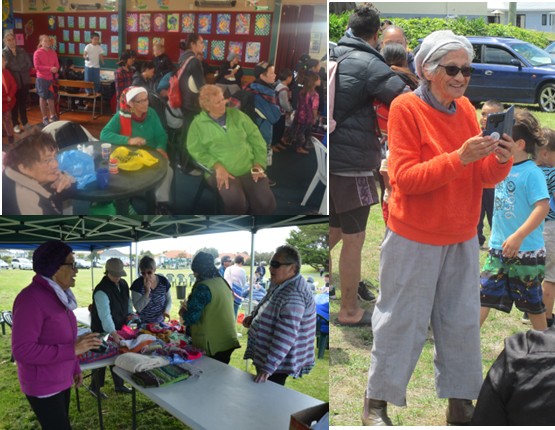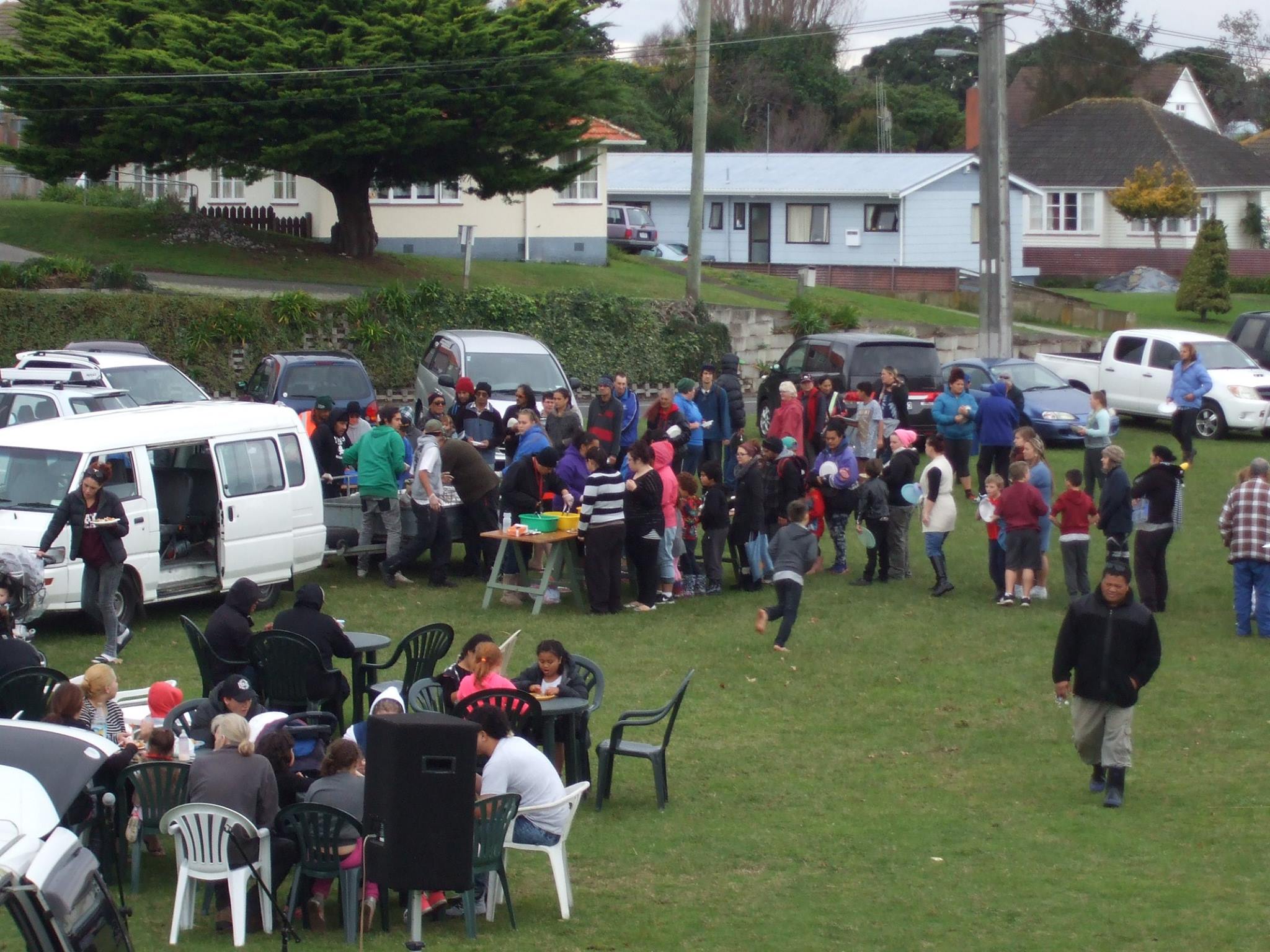




Revisiting Stone Soup: A Decade of Community-Led Action in Whanganui
A decade on, the Stone Soup kaupapa continues to thrive in Whanganui, anchored in aroha, connection, and the belief that everyone has something to offer. Read how local leadership, shared kai, and deep relationships have sparked lasting change-led by the community, for the community.
In 2007, tragedy shook Gonville West in Whanganui. A neighbourhood shooting claimed a young life, and the ripple effects were immediate. Services pulled out, families withdrew, and fear took hold. But amidst the grief, a small group of locals came together and asked a simple question: What can we do, together?
That question became Stone Soup.
Inspired by the European folk tale where everyone adds what they have to a shared pot, Stone Soup began with a belief that still drives it today: everyone has something to offer. As Kath Parnell from Te Ora Hou Whanganui shared in our recent Child Rich Communities online kōrero,
“We didn’t start with a plan. We started with people, with aroha, and with kai. The rest grew from there.”
Back in 2016, Stone Soup gatherings in the park were already creating space for connection and courageous kōrero, from celebrating milestones to addressing real concerns like bullying or unsafe streets. Fast forward to today, and that kaupapa has deepened and expanded in ways no one could have imagined.
Where They Are Now
Today, Stone Soup is active every week, not just in the park, but across the community.
- Over 35 local volunteers regularly create spaces for connection, including youth groups, walking groups, kai initiatives, and whānau-led events.
- Weekly kai distributions feed over 100 whānau, made possible through partnerships with Food Bank, Zilch, local growers, and generous supermarket supporters.
- Young people are designing and running their own youth groups. “I used to assume it was something I had to do,” one local kaimahi shared. “But when I asked if they wanted to run it themselves, they said, ‘Yeah, hard out.’ And they’re doing it.”
- Funding now comes from diverse sources; churches, philanthropic trusts, local businesses, and community-focused funds, with in-kind support often just as vital as dollars.
While Whanganui is where Stone Soup began, the kaupapa has since been embraced by other communities around the country. Today, it’s part of a wider network of five Te Ora Hou sites, each one shaped by the unique rhythms, needs, and leadership of its place.
“It’s not a cookie cutter,” says Kath. “Every community brings its own strengths. We just support each other along the way.”
But through it all, the essence remains.
“Stone Soup isn’t something I do,” says Kath. “I’m not the reason it happens. I just help create movement. I’m the community animator, but the rhythm comes from the community itself.”
The Power of Being Invited to Stay
Stone Soup’s early vision was for the community to eventually take ownership. But over time, something unexpected happened.
“We tried to hand it back,” Kath explained, “but the community told us: ‘No, we want you to hold it. We trust you.’ That was a huge turning point. We had to ask ourselves: are we empowering the community if we don’t listen to them?”
Since then, Te Ora Hou’s role has been one of support, not control. That includes everything from helping someone run a Zumba class, to sitting down with a would-be volunteer over coffee and asking,
“What’s the barrier? How can I help you drop it?”
Leadership Starts With Belonging
For rangatahi, the message is clear: you belong here, and your voice matters now. Young people co-lead groups, help plan events and even sit in on AGMs. As Kath puts it,
“Our kids aren’t the leaders of tomorrow, they’re the leaders of today. They’ve got opinions, skills, and hopes for their neighbourhood. They just need the space to bring them to life.”
The same goes for adult volunteers. Many are long-time residents with deep local knowledge, mums at kindy, nannies at the dairy, rangatahi returning home with fresh ideas.
“People are ready,” says Kath. “They’ve been thinking about what they want for ages. When they step forward, it’s our job to say: how can I walk alongside you to make it happen?”
Relationships, Not Services
The strength of Stone Soup lies not in formal structures or polished plans, but in relationships. While a professional-looking strategy exists, the community prefers their hand-drawn one—a steaming bowl of soup, scrawled with priorities and dreams.
“That’s the one they point to and say, ‘That’s us,’” Kath laughs. “It doesn’t need to be flash. It needs to feel like home.”
A Long Game, Played Together
Stone Soup is now part of five community sites across Aotearoa, each different, each grounded in its own people and place. In Whanganui, the kaupapa continues to grow—slowly, relationally, and with deep care.
“We’re not here to ‘fix’ our neighbourhood. We’re part of it. Our role is to create the conditions for others to thrive. That’s when real change happens.”
With thanks to Kathy Parnell and Judy Kumeroa, whose original story and recent online kōrero have informed and inspired this update. Their continued generosity in sharing the journey of Stone Soup helps us all learn more about what long-term, community-led change can look like in practice.


